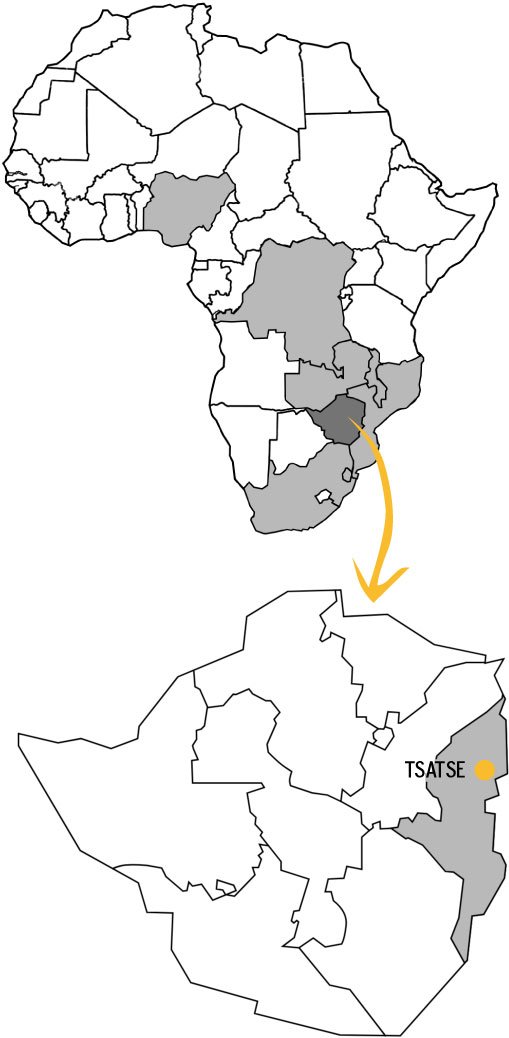The Story of Tsatse Community
For people living in the community of Tsatse, life is a daily struggle. Situated near the Mozambican border, it is a rural community where many people from Mozambique have made their homes. With little to no means of official employment, people have few options but to survive by farming, yet the area is plagued by drought and this forces a search for piecework within the community.
In Tsatse there are many white-robed churches. They are accustomed to childhood marriage and believe that accessing medical care shows contempt for God. This leads to people staying sick because they are unwilling to accept help from clinics or hospitals. There is no clinic in Tsatse. There is also no school for the upper grades, leaving most people ill-educated. A spirit of fear grips the community, as traditional healing and witchcraft have a hold on many people living there.
100 Children currently support
15 Care Workers Coordinated by Tafirenyika
Basic Services Started in 2022
150 km from the honde valley local Office
Hands at Work heard about the vulnerability of people living in Tsatse through word of mouth. When people from Tsatse visited relatives living in other communities where Hands at Work serves, they would see the work that the Care Workers were doing to serve the most vulnerable. They would also hear the beautiful stories of Care Workers fighting and advocating for the children.
As people from Tsatse witnessed what God was doing in these other areas, they said that if Hands at Work could come to their community, many people would be helped. Eventually these conversations reached the ears of John, a member of the local Hands at Work team in the Honde Valley, who shared them with the Honde Valley team members and the Zimbabwe Regional Support team.
A trip was organised to go and assess the community’s level of vulnerability. Walking through the community, meeting children, and seeing the vulnerability with their own eyes, the calling was confirmed, and Hands at Work began serving in Tsatse.
The Honde Valley team began assessing the needs of people living in Tsatse and mobilised a group of men and women to become Care Workers – many of whom are the Primary Caregivers of children coming to the Care Point. Hands at Work began officially providing the three essential services of food, education and basic health care to 50 of the most vulnerable children in November 2022.
Shortly thereafter, the Honde Valley team facilitated a Foundations Training for the Care Workers and local church leaders, where they shared in depth the vision of Hands at Work and what it means to care for the most vulnerable children.
The local Hands at Work team in the Honde Valley currently supports one Community Based Organisation, which exists to care for the most vulnerable in the community. The office provides training, networking, and encouragement to those Community Based Organisations like Tsatse. It also gives administrative support, including helping with funding proposals, monitoring and evaluation, bookkeeping and reporting to donors.
BE INSPIRED BY UPDATES FROM TSATSE COMMUNITY














